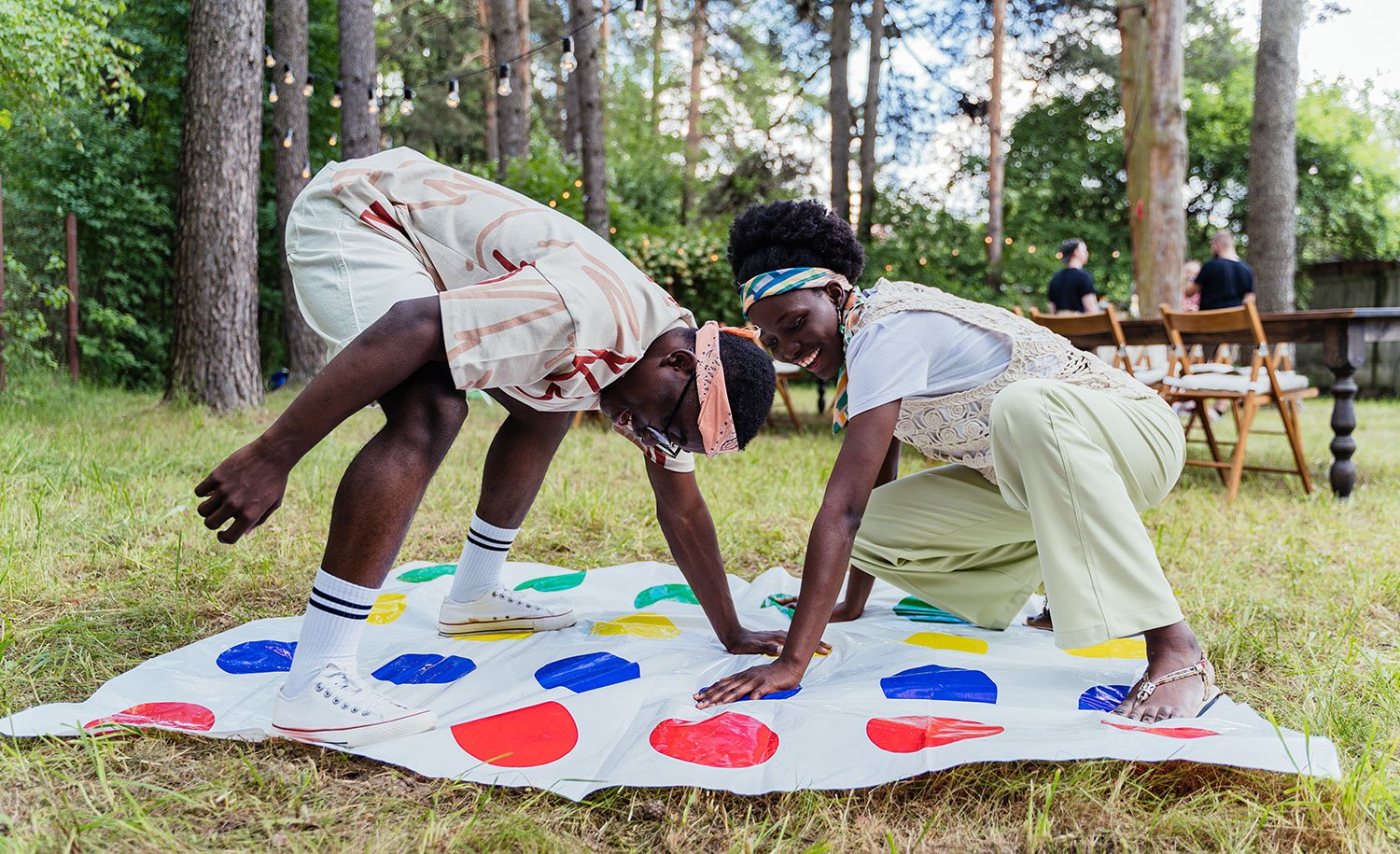7 Things Worth Committing to in the New Year
New Years Resolutions are trash. I'm just going to say it. Don't get me wrong - it's awesome (and pretty important) to do some recalibration, decide what's important to you in the New Year, and set some relevant goals. New Years Resolutions (NYR) just aren't the way to go about this.
Insert New Year’s Resolutions here…
Here's why: people make NYR from a place of self-judgement, as follows:
Step 1: Determine a problem ("I'm fat")
Step 2: Pause briefly to be an asshat to yourself ("I have no willpower. I'll never get a promotion. I'm ugly. I'm going to be alone forever.")
Step 3: Determine ideal resolution ("Stop being fat")
Step 4: Determine ideal solution ("Work out 5 days a week")
Now try to implement this plan. Without fail, it will happen like this:
Week 1: Plan is going great
Week 2: Plan is pretty ok
Week 3: Why do I even bother? I'm so fucking fat and worthless. F*** the gym, I'm just going to eat cheez-its.
The problem here is that we all ACT how we FEEL, because SCIENCE. So if you create a goal from a place of self-judgement, then every time you go to take action on that goal, you are calling up a negative mindset. The negative mindset makes you feel shitty. And who is good at working out when they feel shitty? Pretty much no one, regardless of the fact that it makes you feel better. It's not how you feel after that allows you to start, but how you feel before. Make sense?
Instead of New Years Resolutions, here are some things you can commit to that will definitely make next year the best one yet.
1. Commit to Making Time for Play
Play is basically the best thing ever. Neuroscientist Jaak Panksepp has researched play extensively and has defined an instinct known as “play-joy.” He suggests it is one of the basic emotional systems in human beings along with anger, fear, the sex drive and the maternal drive. Without play, you're sort of like a chair with three legs. You might be fine, but I wouldn't trust that chair with a butt I really care about. With play, you get dopamine, creating that future-focused, positively-oriented mental state that supports optimal cortical function.
Why else is play awesome? Because it...
helps you learn and remember
fosters creativity and innovation
boosts confidence
improves your overall productivity
connects us and creates community
makes your brain light up and grow
feels great (Which matters, because when you feel
great, you're enabled to take powerful actions)is awesome for your physical health!
Being deprived of play has been associated with social problems in humans and aggressive behavior in animals. We tend to think of play as an activity for children, but NeuroLeadership Institute journal paper The Healthy Mind Platter proposes it has significant benefits for adults. What should adult play look like? Research suggests it needs to be social and provide unexpected and novel situations. If it generates laughter, all the better.
2. Commit to putting people above projects.
People are pretty awesome. I mean - not all of them. But enough of them to make social time a real priority. Check out this excerpt from The Healthy Mind Platter, A NeuroLeadership Institute report.
When we allow ourselves to relax, the brain’s default mode network turns on. Neuroimaging shows that this network includes the regions of the brain responsible for thinking about ourselves and others. In other words, our default network is social. Research shows social support not only improves physical health and mortality, it also helps people manage stress, confront challenges, and maintain a positive outlook. Matthew Lieberman, one of the founders of social cognitive neuroscience, sees social connection as a basic human need, in the same category as food, water and shelter. Connecting time, then, can be viewed not as a luxury but as a necessity.
And if you really want to level up, stop overworking!! There are so many reasons for this, but one simple one is that overworking doesn't work. Not even for your boss. The ROI is negligible, while the impact this has on your health, mental state, and relationships is massive. According to Harvard Business Review,
There’s a large body of research that suggests that regardless of our reasons for working long hours, overwork does not help us. For starters, it doesn’t seem to result in more output. In a study of consultants by Erin Reid, a professor at Boston University’s Questrom School of Business, managers could not tell the difference between employees who actually worked 80 hours a week and those who just pretended to.
If your boss can't tell the difference, then why are you spending your time overworking instead of doing awesome shit with awesome humans?
3. Commit to looking your fears in the face - as the first step in coming up with a plan.
Looking your fears in the face is only scary if you don't know what to do about them. But if you want to overcome your fears, you need a plan. There has to be a first step. And the first step is to acknowledge the fear. Once you see it clearly, you can begin working to change your relationship with it.
For example, a lot of my clients come to me unhappy in their jobs, but terrified of rejoining the job market. Instead of looking that fear in the face, they'd been avoiding it, staying in a job that doesn't align with their needs and values. Obviously, this made the situation worse. So our first step is to articulate exactly what it is they're afraid of, putting a face to the name Fear. Our second step is to explore exactly how staying in the current situation is making them feel. I hear words like, "frustrated, "undervalued," "overwhelmed," "stuck," and "unhappy." Usually, once you get a totally lucid understanding of how you feel now, you realize that continuing to feel like that for a minute longer is much scarier than their original fear.
That's the turning point. Now describe for yourself what you DO want - unapologetically, in full detail. Claim that shit as yours. Once you've defined a specific destination, you'll be able to plot a path from here to there. BAM.
4. Commit to shedding the shit that isn’t helping you.
When a lobster 's insides become too awesome for it's outsides, it finds a safe place and sheds that confining outer shell. Like our friendly neighborhood lobster, it's time for you to get rid of the shit that's limiting you. Drop that fuckboy. Get rid of the people who never reach out first. Stop waiting to "lose the last 10 lbs" or "be happy" before you start participating fully in your life. I know this isn't news, but you only get one life. Get on it.
Protip: Most people say they don't have time, when really they don't have mind. They spend so much time on guilt, judgement, and worry that everything takes twice as long. When you live in alignment with your values and make a real effort to be your best self - while also giving yourself a little grace to be human - you'll find you have the clarity and energy to add more to your plate. This is often the difference between accomplishing that passion project and letting it wilt on the shelf.
5. Commit to not being an asshole...to yourself
Man, is THIS ONE worth it. It's time to admit that, while you may be a weirdo, you're also pretty f***ing rad. Here are two simple ways to start shifting your inner monologue from negative to possible.
Tack the word "yet" onto the end of "I can't"-type sentences about all the shit you are horrible at, aka: "I'll always be poor. I have no idea how to negotiate for a higher salary ... yet." See how that works?
Imagine someone else did the thing for which you're judging yourself. Imagine your best friend sent out an email to the 1500-person list serv and it had three typos and forgot the call-to-action. What advice would you give her? Obsess about being an unprofessional hack? Or admit your mistake and handle it? Wallowing doesn't serve anyone!
And because I think you're the cat's pajamas, here's two more:
Gather "evidence" that people value, respect, and like you. Those nice emails from your boss, the thank you notes, the social media shoutouts. The people who've invited you into their lives (by being your friend, hiring you to join their team, etc) didn't do so because you suck. Pay attention to when they acknowledge you, and save the evidence in a single spot. When you feel bad, go look at all the reasons others people agree: you're freaking rad.
Switch from (A) I'm a failure (fixed mindset), to (B) I failed this time, I've identified where I went wrong, and I have a plan to do better next time (growth mindset).
While we're on the subject, maybe don't be an asshole to anyone else either. Fair?
6. COMMIT TO CURIOSITY
According to Greater Good: The Science of a Meaningful Life, not only does curiosity help us survive, boost achievement, increase empathy, strengthen relationships, and improve wellness - it actually makes us happier!
Research has shown curiosity to be associated with higher levels of positive emotions, lower levels of anxiety, more satisfaction with life, and greater psychological well-being. Of course, it may be, at least partially, that people who are already happier tend to be more curious, but since our brains are wired to release dopamine when we have positive new experiences, it seems likely that it goes the other direction as well.
If you want to improve your networking skills (or if you struggle with social anxiety), passionate curiosity is also a great way to both get to know other people and take the focus off yourself. Ask enough good questions, and you're bound to find something you're genuinely interested in. Thus have all great relationships begun.
7. Commit to saying yes.
Let's try a little experiment. This January, say yes to each of the following things at least once.
Say YES to:
new experiences
conversations
invitations
collaborations
nature
being goofy
complimenting strangers
opportunities for gratitude
self-respect
participation
I dare you to follow up with me in February and tell me you had a horrible month. I freaking dare you.
IN CONCLUSION
Are you going to commit to making 2017 better by following these 7 simple steps?
Sweet. And are you going to have a FREAKING FABULOUS NEW YEAR????
My work here is done.









